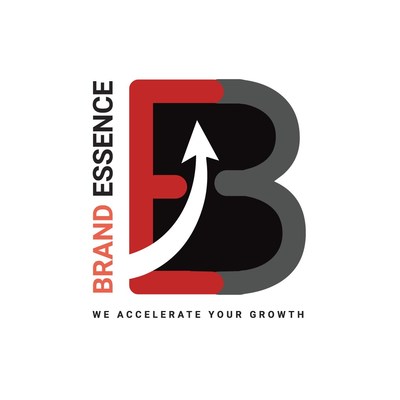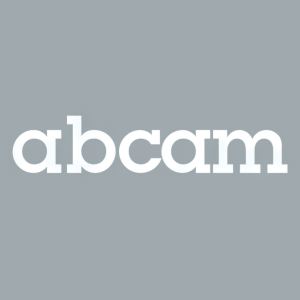Global Polyclonal Antibodies Market to Project with +4% CAGR by 2029, says Brandessence Market Research
The Global Polyclonal Antibodies Market is projected to grow at a CAGR of 4% from 2022 to 2028, driven by increasing chronic diseases, healthcare expenditure, and technological advancements. The market benefits from a rise in the demand for personalized medicine, particularly in the Middle East and Africa.
Key players include Thermo Fisher Scientific, Merck KGaA, and Abcam (ABCZF). The competitive landscape is intense, with significant challenges including ethical concerns about animal sourcing and high production costs.
Opportunities arise from the growing application of polyclonal antibodies in diagnostics, especially for early disease detection. Key trends influencing market dynamics include the rising prevalence of chronic diseases and the increasing awareness of antibody benefits.
- Projected CAGR of 4% from 2022 to 2028.
- Growth in demand for personalized medicines.
- Increasing healthcare expenditure is driving market growth.
- High adoption of polyclonal antibodies in diagnostics.
- Ethical concerns regarding animal sourcing for antibody production.
- High production costs may hinder smaller laboratories from entering the market.
Insights
Analyzing...
Key Takeaways:

- Global Polyclonal Antibodies Market is expected to witness a CAGR of
4% over 2022-2029. - Growing chronic disease prevalence, increase in healthcare expenditure, and widespread technological advancements are propelling market growth.
Middle East &Africa is witnessing substantial progression due to evolving healthcare expenditure and rising demand for personalized medicines.- The numerous players operating in this industry are facing intense competition from each other.
Get Sample of Report@ https://www.aimarketreport.com/downloadSample/PostId/859
Global Polyclonal Antibodies Market Outlook (2022-2029)
The Global Polyclonal Antibodies Market is anticipated to amplify with a CAGR of
Polyclonal antibodies are predominantly produced by numerous B-cells in response to a foreign substance termed as an antigen. These antibodies comprise of a mixture of diverse antibodies which can recognize specific parts of the antigen, known as epitopes. These epitomes are produced by a single clone of B-cells. Polyclonal antibodies are commonly used in research and diagnostics because they can recognize multiple epitopes on a target molecule, which increases the chances of detection. They are also utilized in therapies, such as antivenoms, which are used to treat bites from different species of venomous snakes or spiders.
Competitive Hierarchy
The prominent players defining the competitive terrain of the Global Polyclonal Antibodies Market are Thermo Fisher Scientific Inc. (
Segmental Outlook
- Based on product type, the secondary antibody segment is presently leading the owing to their cost effectiveness, versatility, and broad range of applications.
- In terms of application, the commercial segment is projected to amass notable gains over the estimated timeframe. This is due to the increasing number of biotech and biopharma companies associated with the production of polyclonal antibodies.
Get Methodology @ https://www.aimarketreport.com/requestMethodology/PostId/859
Region-Wise Outlook
The industry in this region is gaining significant traction because of the ever-rising healthcare spending, rising pervasiveness of chronic ailments, along with continuous R&D investments. Also, the surge in the geriatric population, elevating demand for personalized medicines, and rapidly evolving medical infrastructure are adding to the growth of this regional industry.
Elaborating The Key Trends and Dynamics of This Industry
The rising prevalence of both chronic and infectious diseases along with the increasing healthcare expenditure are primarily augmenting the outlook of this industry sphere. Furthermore, increasing R&D activities in the field, rapidly evolving healthcare infrastructure across various regions, along with widespread technological advancements in the field are creating an upward trend in this market. Besides, surging neurobiology and stem cell-based research activities, escalating demand for therapeutic antibodies, and growing cancer pervasiveness worldwide are adding momentum to the progression of this business vertical. Alongside, increase in the geriatric population base and the affordability of polyclonal antibodies are aiding the expansion of this industry.
Major Growth Drivers
Growing prevalence of chronic diseases- There is a rising prevalence of chronic ailments like cancer, diabetes, COPD, and autoimmune diseases across the globe. Genetic defects, age, unhealthy lifestyle, and surging pollution levels are some of the major reasons leading to the rapid occurrence of such ailments. Polyclonal antibodies are predominantly used in the diagnosis and treatment of these diseases due to their affordability and efficacy. Apart from that, these antibodies can also be customized to target specific antigens, which makes them ideal for use in personalized medicine. It is worth noting that personalized medicines are gaining immense popularity when it comes to the treatment of diseases like cancer. This is because they are specifically developed as per the need of an individual and therefore are highly effective in nature. These factors together are positively swaying the dynamics of this market vertically.
Increasing cognizance about the benefits of these antibodies- The growing awareness about the benefits of polyclonal antibodies, such as their ability to recognize multiple epitopes and their high specificity is another growth stimulant for this market. This increased awareness has accelerated the adoption of these antibodies in research, diagnostics, and therapeutics. Alongside, rapid technological advancements are further helping this industry to evolve.
Challenges
Animal cruelty related ethical concerns- Polyclonal antibodies are generally obtained from animals. They are first immunized using an antigen before extracting these antibodies. But several regulatory bodies have voiced opposition to this practice before of its invasive nature. Some animals also react adversely to these antigens. This is a potential challenge being faced by this industry.
Opportunities
Rising application of polyclonal antibodies in disease diagnostics:
These antibodies are being used in the diagnostics sector which is creating potential growth prospects for this market. These antibodies can be effectively used in point-of-care testing devices to enhance their efficacy. Apart from that, with rapid technological advancements, polyclonal antibodies can also be used in novel diagnostic techniques for the early detection of ailments like cancer. These factors together are projected to create an upward trend in this industry in the ensuing years.
Restraints
High production costs:
The production process of antibodies is quite complicated. Laboratories and research institutes which are facilitating the same should have adequate infrastructure, skilled professionals, and proper equipment. This increases the cost of the entire production process. Smaller laboratories have budget constraints which in turn prevent them from entering this industry. This is obstructing the development of this industry.
Porter's Five Forces Analysis
Threat of new entrants- The production process of polyclonal antibodies is quite complex. It requires adequate infrastructure and expertise, along with high-end technologies and equipment. This makes the entire process quite expensive. This creates a barrier for the new entrants. Apart from that, the already existing companies have already built a strong foothold in the market and have captured a broad consumer base. Due to all these factors, the threat of new entrants is low in this industry.
Bargaining power of suppliers- This industry has a large number of raw materials and equipment suppliers. Thus, the buyers have a diverse range of options to choose from. They generally opt for suppliers who provide quality products at reasonable rates. Every supplier tries to hook the customers by producing quality raw materials and equipment while fixing reasonable rates for the same. Hence the bargaining power of suppliers is low in this market.
Bargaining power of buyers- The buyers get a wide range of options to choose from since there are numerous suppliers operating in this industry. These buyers have strong purchasing power along with the ability to negotiate the prices with their potential suppliers. They mostly try to procure high quality products at lower prices from the suppliers. Thus, the bargaining power of buyers is high in this business space.
Threat of substitute- The threat of substitutes in this market is relatively high. This is because of the existence of alternate technologies and products like monoclonal antibodies, nucleic acid-based assays, and recombinant proteins, among others. These substitutes can be used for disease diagnosis, R&D activities, and treatments.
Competitive Rivalry- The existing players in the market face intense competition from each other. They are keen on staying ahead of the curve and emerging as global leaders. These companies compete on the basis of quality, price, and product portfolio. Therefore, the competitive rivalry in this market is high.
On Special Requirement Polyclonal Antibodies Market Report is also available for below region:
U.S ,Canada
Germany ,France ,U.K. ,Italy ,Spain ,Sweden , Netherland,Turkey ,Switzerland ,Belgium , Rest ofEurope
South Korea ,Japan ,China ,India ,Australia ,Philippines ,Singapore ,Malaysia ,Thailand ,Indonesia , Rest Of APAC
Mexico ,Colombia ,Brazil ,Argentina ,Peru , Rest ofLatin America
Saudi Arabia ,UAE ,Egypt ,South Africa , Rest Of MEA
Purchase Copy of Report @ https://www.aimarketreport.com/Checkout?report_id=859
Major Developments
Acquisitions
In 2021, Bio-Rad Laboratories, a leading provider of life science research tools, announced the acquisition of Celsee, a microfluidic systems manufacturer. This acquisition expanded Bio-Rad Laboratories' capabilities in the analysis of rare cells, including the detection of circulating tumor cells.
In
Partnerships
In
In
Related Reports:
- Organ Care Products Market Size is expected to reach
USD 332.1 Million by 2029 | AI Market Report - Cancer Screening Market size is expected to reach
USD 287.48 billion by 2029 | AI Market Report - Skin Cancer Diagnostics Market Projected to Reach CAGR of
7.3% Forecast by 2029 says AI Market Report - Nuclear Oncology Market Size, Analysis, Share, Research, Business Growth and Forecast to 2029
- Protein Processing Market Expected to Flourish in Coming Years says AI Market Report
- Telemedicine Cart Market Share, Size, Regional insights from (2022-2029)
- IV Flush Syringe Market by Product Category, Product Type, Material Type, Capacity, reusability, End User, Distribution Channel and Key Geographical Regions: Industry Trends and Global Forecasts, 2022-2029
- Hybrid Imaging Market – Industry Trends and Forecast to 2029
- Medical Oxygen Concentrators Market Size (2022-2029) Share, Industry Trends, Growth, Challenges, and Forecast: AI Market Report
- Clinical Diagnostics Market Is Expected to Boom – Bio-Rad Laboratories, Danaher Corporation,
Hoffmann-La Roche AG , Abbott Laboratories - At
7.25% CAGR, Cycle Apparel Market Size is expected to generate a revenue ofUSD 7.41 Bn by 2029, Globally:Brandessence Market Research - 3D Cell Culture Market is Growing & will Touch the CAGR of
17.1% by the Year 2029 -Read Full Report |Brandessence Market Research - The Global Genetic Analysis Market size is expected to reach
$22.31 billion Brandessence Market Research - With
13.87% CAGR, Atopic Dermatitis Market Size to SurpassUSD 16.23 Billion by 2028Says Brandessence Market Research - Canned
Tuna Market Size 2023, SWOAT Analysis and Forecast To 2029 | American Tuna,Bumble Bee Foods , Dongwon Industries,Thai Union Group |Brandessence Market Research - Global Exoskeleton Market: Industry Trends & Outlook 2023 says
Brandessence Market Research - Solar Control Window Film Market to be Worth
~ by 2029:$1,203.1 M nBrandessence Market Research - IoT In Healthcare Market Size Growing at 19.20 % CAGR, Set to Reach
USD 388.18 Billion by 2027 saysBrandessence Market Research - Healthcare Payer Services Market Forecast 2022-2029: Demand, Business Growth, Opportunity, Application, Cost, Sales, Service, End-Use, Size, Top Manufacturers Analysis - Cognizant, EXL,
HGS Ltd. , Accenture |Brandessence Market Research - Healthcare Specialty Enzymes Market to hit
USD 6.84 billion by 2027, saysBrandessence Market Research - Global Bioanalytical Services Market Size Expected to cross
USD 2 Bn by 2028 saysBrandessence Market Research
Follow Us: Linkedin
M & A Advisory: Merger & Acquisition, and Capabilities
Blog:
Published Reports 2023
What is Market Research?
What is Market Sizing? How to Measure Your TAM, SAM, and SOM
Top 10 Frozen Potato Companies in 2023
Top 5 Natural Food Colors Companies in Global Market 2023 | Here's Everything need to know About
Everything You Need to Know About the Top 5 Companies Operating in Global mRNA Vaccines and Therapeutics Market
The Rise of DIY Medicine: Exploring the Home Diagnostics Market
Top Activated Carbon Manufacturers in the Global Market 2023
Top 5 Skateboard Companies in Global Market 2023
Top 10 Healthcare Staffing Companies in Global Market 2023
TOP 5 Distributed Antenna System (DAS) COMPANIES 2023
Top 10 Plant-based Meat Companies : growing sustainable, plant-based food industry
Contact:
Mr. Vishal Sawant
Email: vishal@brandessenceresearch.com
Email: Sales@brandessenceresearch.com
Corporate Sales: +44-2038074155
Asia Office: +917447409162
Logo: https://mma.prnewswire.com/media/1392316/BEMR_Logo.jpg
![]() View original content:https://www.prnewswire.com/news-releases/global-polyclonal-antibodies-market-to-project-with-4-cagr-by-2029-says-brandessence-market-research-301808329.html
View original content:https://www.prnewswire.com/news-releases/global-polyclonal-antibodies-market-to-project-with-4-cagr-by-2029-says-brandessence-market-research-301808329.html
SOURCE







